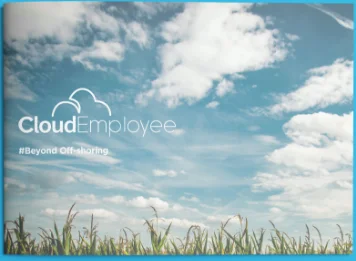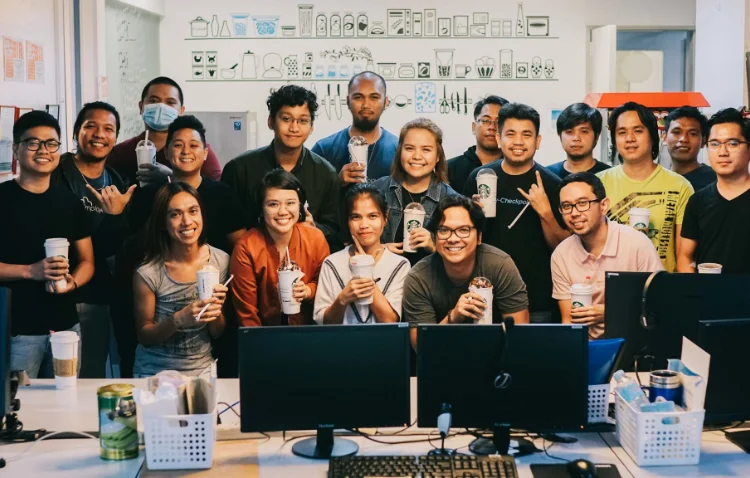The pressure on software developers has never been greater, especially in these modern times. That's because the demand for technology keeps increasing, and the software development process isn't a walk in the park. These make it altogether challenging for developers to consistently deliver higher quality apps that will meet end-users' needs.
However, by adhering to some of the industry's best practices, software developers can keep up with the tech world's fast-evolving nature and continue to deliver the best to the software market. With that said, whether you are a seasoned developer or a newbie, working for a company or independently, the following tips will help keep your development projects simple, cost-effective, and of course, high quality.
1. Develop your software project in parts.
While small projects may look like something you can manage in one go, the best practice is to split your software development projects into different parts to define how to execute them. If you are working on something massive, then there are no negotiations as you can't complete it all in one go if you don't want to make the task too difficult.
The practice of chopping up your projects into bits makes the work manageable because you can circumvent the confusion and complexity that comes with tackling a project as a single lump. Furthermore, when there are errors or mistakes, which is not uncommon when developing a new app, tackling them becomes quicker and easier. The reason is, instead of looking through the entire project to fix a broken code, the problem becomes easy to locate.
One of the advantages of splitting projects into smaller modules is that you can engage software developers from any location in the world. This way, the project can receive attention from different software engineers instead of being assigned to one. In the end, completed parts can come together as a whole, saving lots of time and resources.
2. Keep it simple & use repositories early.
Every good software developer should not ignore the importance of keeping codes simple during software development. From the word "simple," the idea is to avoid unnecessary complexity during the development journey, especially when the project is large. Code simplicity is a concept that upholds the ability to "reason about the system," i.e., understanding what's going on without having to go through the stress of running an entire program.
While each developer may have some style of crunching codes, it's best to avoid any form of ambiguity. Another developer will undoubtedly review your code in a software development process, so why make it difficult. In fact, someone else may have to use your codes as a template. It is, therefore, necessary to maintain simplicity every step of the way.
Now, as project size increases, managing it becomes more challenging, making coding repositories an essential aspect of software development. You can upload all codes into an online cloud facility, where you can execute fast downloads and uploads. The repository helps developers keep track of changes made by any member of the development team.
What's more, it compares old and new versions of projects, and if there's a problem with the latest one, you can quickly reverse whatever change you introduced that caused code breakage.
3. Continuously testing
Before software is ready for deployment, you cannot overemphasize the need for testing. It's one of the most essential on the list of best practices. Now, when it comes to testing, you cannot afford to be overconfident. Imagine working on a colossal project for many weeks or months, only for you to get to the tail end and realize the program isn't running correctly.
A good developer tries to avoid the approach of postponing testing till after the entire program is complete. While you may think testing will take up some of the time you could use to write codes, the truth is, you'll eventually save a lot of time if you are testing as you go.
Thanks to powerful automated algorithms, you can run millions of tests within a short period. One of the benefits of testing includes being confident about your written program. You'll also confirm all components of the software are working before deployment. Essentially, it's best to adopt a very robust testing approach as much as possible. This is because the more exhaustive your testing process is, the more confident you'll be about your software's functionality.
You don't want to disappoint a client, so building software with zero flaws/bugs, maximum functionality, high usability, reliability, and optimum efficiency should be your end goal. For an ideal software development project, here are some necessary tests that will ensure you catch and fix any problem with your software.
- Security testing
- Performance testing
- Integration testing
- Automated testing
- Usability testing
- Mobile testing
- Unit test
- System testing
- Load testing
5. Coherence
Another vital practice you need to keep in mind as a developer is "consistency." If you have a big project at hand, you'll likely need a collaboration of engineers if you will complete your work on time. However, there is a need to maintain a consistent code writing style for every developer who codes. This practice will allow project managers to differentiate the fragments written by different authors.
Furthermore, coherency in codes makes testing, editing, and reviewing each other's work easy and quick. What's more, if a software developer leaves before a project is complete, another engineer can seamlessly continue the job. Here are tools you can adopt to enforce a consistent style of coding among software development teams.
- Editorconfig: a system that unifies code written by developers with different IDEs.
- ESLint: this tool is a highly configurable linter based on node.js.
- JSCS: also known as Javascript Style Checker. It's an excellent tool for formatting JavaScript.
- HTML Tidy: similar to JSCS, but specific for HTML formatting and errors.
- Stylelint: this tool is a linter for CSS with different plugins.
6. Custom libraries are better.
Take a look at some mobile app developers' work, and you'll notice a common use of third-party libraries. Software engineers engage in this practice because it helps in speeding up the entire development process. Who doesn't want to deliver the client's project on time, right? Here's the thing, if you want to avoid ending up with apps that have unnecessary heavyweight, difficult to maintain, and slow loading, then you might want to stick to custom libraries. You'll not only keep your app size small but also reduce app maintenance costs. If you want to achieve speed yet avoid third-party libraries, here are some custom libraries to help your development process.
- EventBus: for simplifying communication between different parts of an app.
- CloudRail: for faster integration of services like Dropbox, Google Drive, and OneDrive via API. Also, cloudRail handles API updates and maintains consistency of codes API.
- Retrofit: helps in turning an HTTP API into a Java interface.
Code Review
You can call it auditing if you like. Ideally, no one is above mistakes, so this practice essentially helps correct errors and reduce bugs in the final product after merging. If a software development project is in parts, the best practice is to allow a team member to read-over your requests before integrating. This practice is one of the ways to achieve overall code quality.
1. It's best to avoid Deep Nesting.
Originally, nesting techniques are supposed to help in organizing coding lines. However, deep nesting ends up making codes harder to read. Deep nesting is a practice that involves the use of multiple tabs to introduce better organization between hundreds of code lines. Remember that other developers will be reviewing your code; therefore, avoiding deep nesting will improve overall readability, which will, in turn, promote easy navigation if you are looking to fix a broken code.
2. Complete Code Refactoring
Don't sweat it; refactoring is just a wordy way of saying, "clean up." It's a practice every developer should naturally imbibe. Refactoring or cleaning up isn't a big-fixing process. Instead, it's a practice that promotes readability, reusability, cleanliness, and overall code quality. Ideally, the best time to refactor codes is when it's still fresh, i.e., when the codes are still familiar to the author. You can refactor a day after writing a code.
3. Document everything
All aspects of developing softwares are essential. However, there's almost none as crucial as documentation. After you complete a project, and all parts seem to be working without any glitch, the client can, however, request changes after a couple of years. A record of all your work will make post-completion improvement possible.
Since you can't remember every tiny detail of your work, this is where records will come in handy. There's more; if you are going to fix bugs and introduce new features to improve user experience, documentation will also come in handy.
Asides from the above advantages, documenting software development progress offers users a kind of detailed handbook, where you can outline your software’s features and function. Also, when users run into any challenges resulting from using the software, documenting helps you provide users with troubleshooting instructions.
We hope you found this article useful. Here at Cloud Employee, we assist both developers looking for work and companies looking to hire dedicated offshore developers across many technologies. Talk to us, learn more about how Cloud Employee works, or see our Developer Pricing Guide.
Work with world leading tech businesses
We connect high-performing software engineer talent in the Philippines with some of the world’s leading and most innovative Tech companies.
Submit CV













